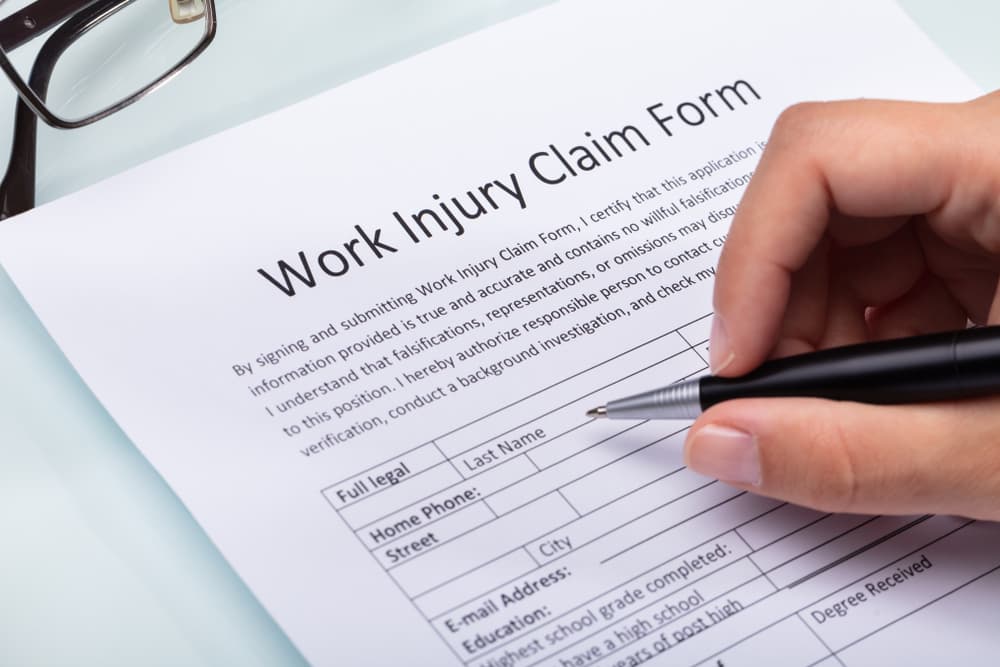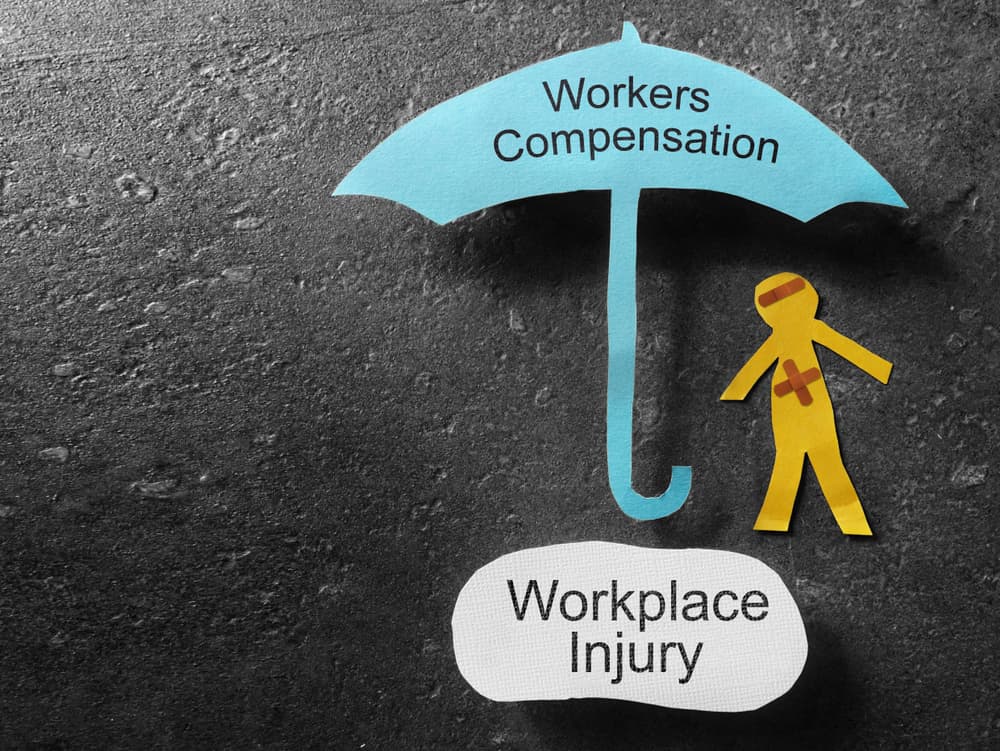Construction workers are around heavy and dangerous equipment on a daily basis. Consequently, injuries on construction sites are an unfortunate – but all-too-common – occurrence. If you or someone you love suffered injuries in a construction site accident, you may be eligible to file a workers’ compensation claim for various benefits. Also, depending on the circumstances, you can recover monetary damages through a third-party claim or lawsuit.
An experienced construction accident lawyer in your area can examine your options with you and take the appropriate legal steps on your behalf.
Common Types of Accidents that Occur on Construction Sites in SC
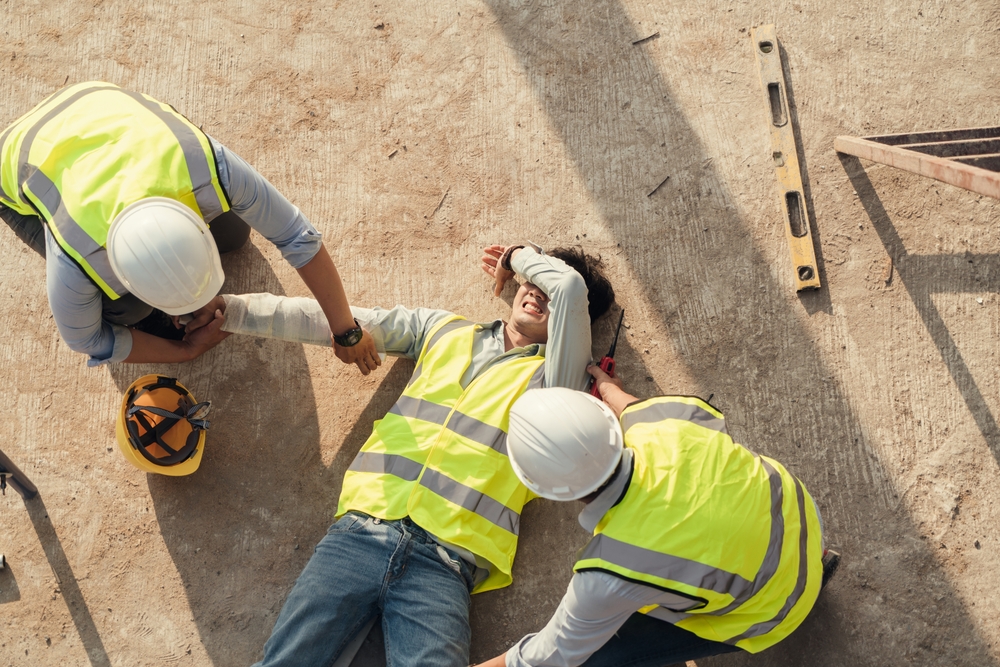
Construction sites are inherently risky environments, with numerous activities happening simultaneously. This complexity leads to various types of accidents, often stemming from the nature of the work and the equipment used.
- One of the most prevalent types of accidents on construction sites is falls. Workers often need to operate at significant heights on scaffolding, ladders, or roofs. Without proper safety measures, such as harnesses or guardrails, the risk of falling increases dramatically. Even a fall from a relatively low height can result in serious consequences.
- Another common accident type involves being struck with objects. Construction sites are bustling with activity, and tools, materials, or debris can fall from above or be accidentally dropped. Workers below are at constant risk of being hit by these objects, which can lead to severe injuries or fatalities.
- Electrocution is also a significant hazard on many construction sites. Workers frequently encounter exposed wiring, electrical panels, and unfinished electrical systems. If these elements are not properly managed, they pose a serious risk of electrical shock.
- Machinery accidents are another major concern on construction sites. Heavy machinery such as cranes, forklifts, and bulldozers are essential on construction sites, but they also pose significant risks. Accidents can occur due to equipment malfunctions, improper use, or lack of training. Regular maintenance of machinery and thorough training for operators can help to prevent such accidents.
- Slips, trips, and falls on the same level, though seemingly minor, are also common on construction sites. Uneven ground, scattered tools, and slippery surfaces contribute to these incidents. Keeping the site tidy, marking hazardous areas, and ensuring proper footwear can reduce these accidents.
- Lastly, trench collapses present a serious danger to workers on construction sites. Trenches are often necessary for laying foundations, pipes, or cables. However, if they are not properly supported, they can collapse, trapping workers inside. Implementing proper trenching techniques and shoring systems can prevent these potentially fatal accidents.
Common Injuries that Construction Workers May Suffer While They Are on the Job
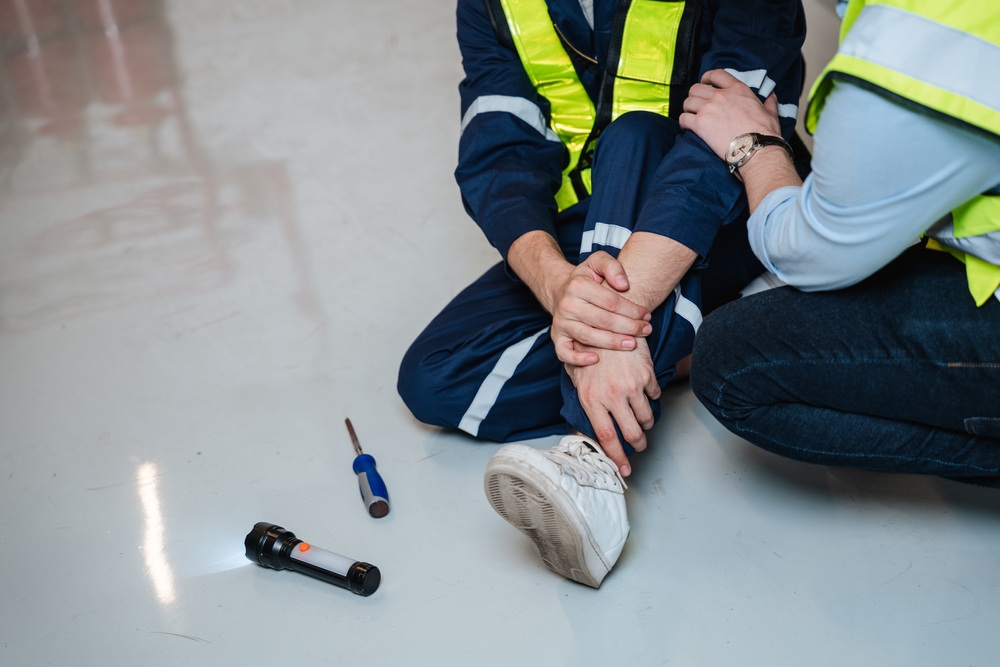
Construction workers face numerous hazards while on the job, which can lead to a variety of injuries. These injuries can range from minor to severe, affecting workers’ health and livelihoods.
- One of the most common injuries on construction sites is bone fractures. These can occur from falls, being struck by objects, or machinery accidents. When a worker falls from a height or is hit by a heavy object, the impact can easily break bones. Fractures often require extensive medical treatment and rehabilitation, sometimes keeping workers off the job for long periods.
- Sprains and strains are also prevalent. Construction work involves heavy lifting, repetitive movements, and awkward postures, which can lead to muscle and ligament injuries. These injuries can be particularly troublesome because they often develop over time due to the constant physical demands of the job.
- Cuts and lacerations are frequent as well. Construction workers must handle various sharp tools and materials, such as saws, knives, and metal edges. Accidental slips or contact with these tools can cause deep cuts, which may require stitches or even surgery.
- Burns are another common injury in construction accidents. These injuries may result from contact with hot surfaces, electrical faults, or chemical exposure. Burns vary in severity, from minor first-degree burns to severe third-degree burns that penetrate deeper skin layers.
- Eye injuries are also significant. Construction sites are filled with dust, debris, and flying particles, which can easily get into a worker’s eyes. Welding, grinding, and cutting metal can produce sparks and fragments that pose a risk. Eye injuries can range from minor irritation to severe damage that may impair vision. Wearing safety goggles or face shields can help to protect against these hazards.
- Lastly, hearing loss is a common yet often overlooked injury. Construction sites are noisy, with constant drilling, hammering, and machinery operations. Prolonged exposure to high noise levels can damage hearing over time. Using ear protection, such as earplugs or earmuffs, can help safeguard workers’ hearing.
What are the Steps for Filing a South Carolina Workers’ Compensation Claim After a Construction Site Accident
Filing a workers’ compensation claim after a construction site accident involves several crucial steps to ensure that injured workers receive the benefits they are entitled to recover. Following these steps can help to streamline the process and improve the chances of a successful claim.
- First, it’s essential to seek medical attention immediately after the construction site accident. Even if the injury seems minor, getting a professional evaluation is important. Prompt medical attention not only ensures proper treatment but also provides documentation of the injury, which is vital for the claim.
- Next, the injured worker must report the accident to their employer as soon as possible. Most states have specific deadlines for reporting workplace injuries, often ranging from a few days to a month. Failing to report the accident within this required timeframe can jeopardize the claim. When reporting the injury, provide as much detail as possible, including the time, date, location, and circumstances of the accident.
- After reporting the injury, the employer is responsible for providing the worker with the necessary forms to file a workers’ compensation claim. The injured worker should fill out these forms accurately and thoroughly, ensuring that all relevant information is included. Any mistakes or omissions can delay processing of the claim.
- Once the forms are completed, the worker should submit them to the appropriate workers’ compensation office or insurance company. It’s advisable to keep copies of all documents for personal records. In some cases, the employer may submit the forms on behalf of the worker, but it’s still crucial to follow up and confirm that everything has been filed correctly.
- The next step involves waiting for the insurance company to review the claim. During this period, the insurer may request additional information or medical records to support the claim. It’s essential to respond promptly to any requests to avoid delays. The insurer will then determine whether to approve or deny the claim.
- If the claim is approved, the injured worker will start receiving benefits, which may include medical expenses, wage replacement, and rehabilitation services. If the claim is denied, the worker has the right to appeal the decision. This process typically involves a hearing before a workers’ compensation judge, where the worker can present evidence and argue their case.
Throughout the entire process, maintaining communication with the employer, insurance company, and medical providers is crucial. Keeping detailed records of all interactions, treatments, and paperwork can also help to ensure a smoother experience. A skilled workers’ compensation attorney in your area can handle these steps for you and pursue the full benefits you deserve to recover in your case.
Types of Available Workers’ Compensation Benefits for Injured Construction Workers in SC
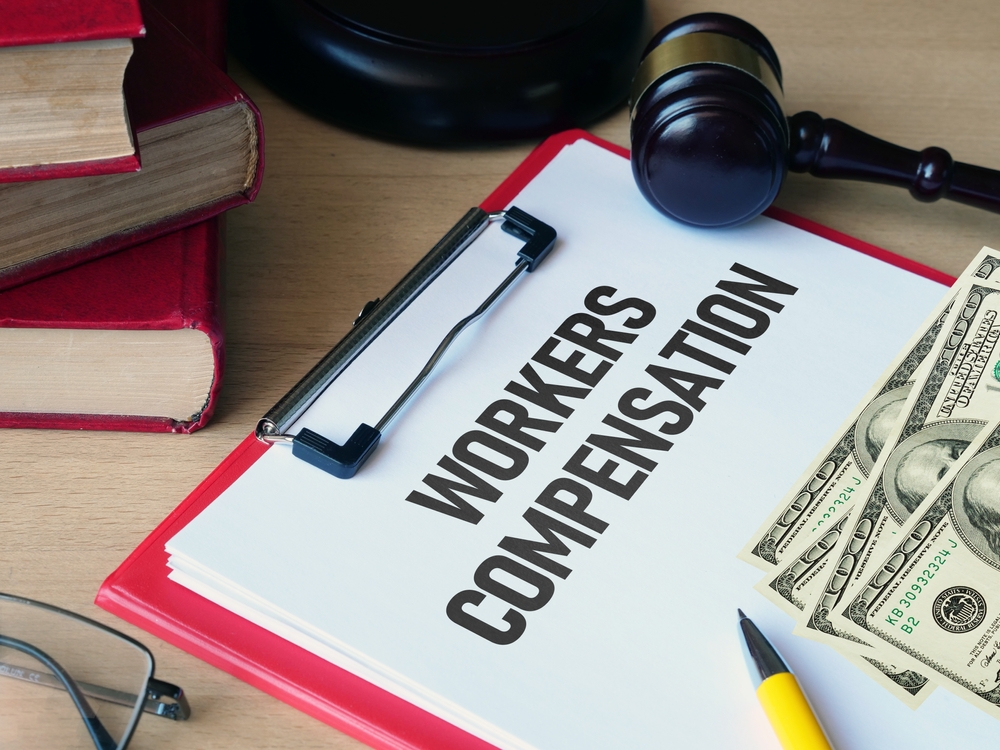
Workers’ compensation provides a range of benefits to injured construction workers, ensuring that they receive support while recovering from job-related injuries or illnesses. Understanding these benefits can help workers navigate the system more effectively.
- One of the primary benefits is medical coverage. Workers’ compensation typically pays for all necessary medical treatment related to the injury or illness. This includes doctor visits, hospital stays, surgeries, medications, physical therapy, and any other medical services required for recovery. There are no out-of-pocket expenses for the worker as long as the workers’ compensation insurer authorizes the treatment.
- Temporary disability benefits are another crucial component. If an injury prevents a worker from performing their job temporarily, these benefits provide wage replacement. Typically, temporary disability benefits are about two-thirds of the worker’s average weekly wage, up to a certain maximum. These benefits continue until the worker can return to work or reaches maximum medical improvement, meaning further recovery is not expected.
- Permanent disability benefits come into play if the injury results in lasting impairments that affect the worker’s ability to earn a living. These benefits are calculated based on the severity of the disability and the worker’s pre-injury wages. Permanent disability can be partial or total, depending on the extent of the impairment. In cases of total permanent disability, the worker may receive benefits for life.
- Vocational rehabilitation benefits are available to workers who cannot return to their previous jobs due to their injuries. These benefits include services such as job retraining, education, and assistance with job placement. The goal is to help the injured worker find new employment that accommodates their physical limitations.
- Death benefits are provided to the dependents of a construction worker who dies as a result of a job-related injury or illness. These benefits may include financial support for the worker’s spouse, children, or other dependents, as well as coverage for funeral and burial expenses. The amount and duration of these benefits vary depending on the number of dependents and their relationship to the deceased worker.
- Lastly, some states offer additional benefits, such as mileage reimbursement for travel to medical appointments and compensation for specific losses, like the loss of a limb or vision.
Eligibility to File a Third-party Claim after a Construction Accident and Recoverable Third-party Damages
In the event of a construction accident, injured workers typically rely on workers’ compensation benefits to cover their medical expenses and lost wages. However, there are situations where a third-party claim may be appropriate. This type of claim is filed against someone other than the employer or a co-worker who may have contributed to the construction site accident. Understanding eligibility for a third-party claim and the types of recoverable damages is crucial for injured workers seeking full compensation.
Eligibility to file a third-party lawsuit arises when a party outside the employment relationship is responsible for the worker’s injury. This may include contractors, subcontractors, equipment manufacturers, property owners, or any other entity whose negligence or actions contributed to the accident. For example, if a worker suffers an injury due to a defective piece of equipment, they may have a valid third-party claim against the manufacturer of that equipment. Similarly, if a subcontractor’s negligence causes an unsafe condition leading to an injury, the injured worker may file a claim against that subcontractor.
To pursue a third-party claim, the injured worker must establish that the third party owed a duty of care, breached that duty, and caused the injury as a result. This process involves gathering evidence, such as accident reports, witness statements, and expert testimony, to demonstrate the third party’s liability. Unlike workers’ compensation, which is a no-fault system, a third-party claim requires proving negligence or fault.
Recoverable damages in a third-party claim or lawsuit can be more comprehensive than those available through the workers’ compensation system. Workers’ compensation benefits are generally limited to medical expenses and a portion of lost wages. In contrast, a successful third-party claim can include compensation for a wider range of damages. These may include:
- Medical expenses – or full reimbursement for all current and future medical costs related to the injury
- Lost wages – or compensation for both past and future lost earnings due to the inability to work
- Pain and suffering – or monetary compensation for physical pain and emotional distress resulting from the injury
- Loss of consortium – or damages awarded to the injured worker’s spouse for the loss of companionship and support
- Punitive damages – or damages that are awarded to punish the responsible party and deter similar conduct in the future
Contact an Experienced South Carolina Construction Accident Lawyer Today
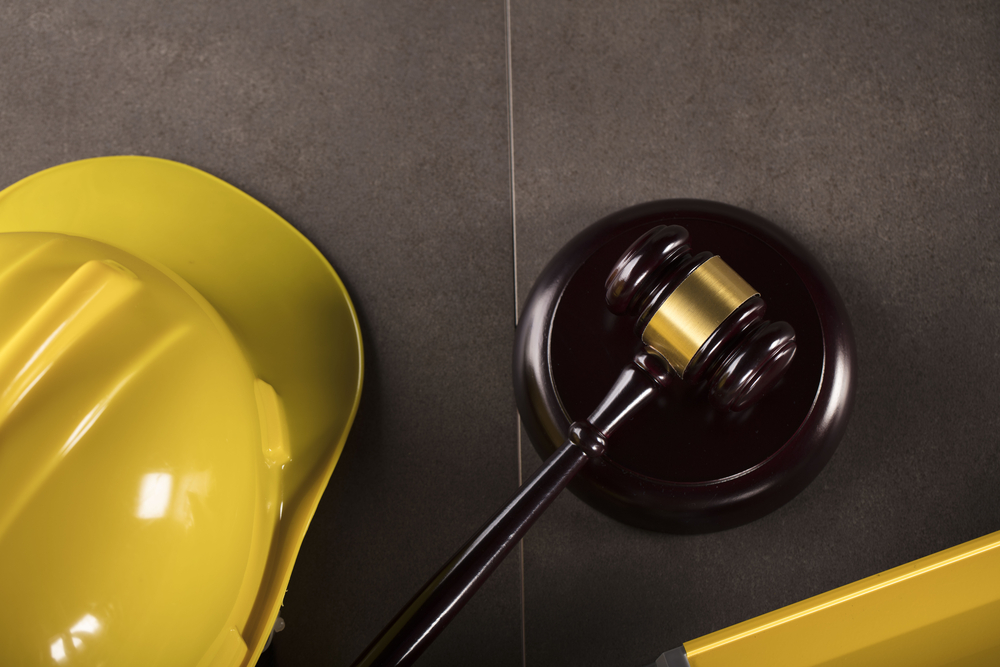
If you suffered injuries in an accident that occurred while working on a construction site, an experienced personal injury attorney can handle every step of your workers’ compensation or third-party liability case for you. Your attorney can gather documentation, file a claim on your behalf, and negotiate for the fair compensation you deserve for your accident-related losses.


